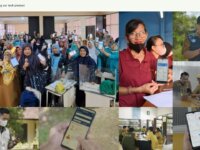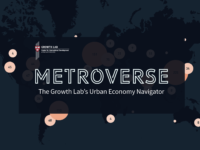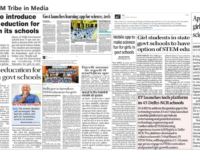Public sector agencies are generating more video/image data but much of the data is not leveraged due to the high overheads and custom requirements in processing video. The VAS platform provides easy access to a spectrum of in-house and industry developed video analytics capability as well as model prototyping capabilities for agency use cases. The key innovation focus on bringing together a scalable platform, lowering the barrier of entry for usage of video analytics, empowering the pub
Innovation Tag: Product Design
Case Study
Delhi’s Model of EV Charging Infrastructure: Ensuring the cheapest EV charging rates in the world
Governments have relied largely on public sector units (PSUs) to set up EV charging stations, failing to leverage the private sector to invest in charging networks at scale. Delhi has implemented a PPP model which is unique in its structure, design process and the criteria used for bidding. Delhi’s approach of setting up 900 charging points at 100 locations in private-public partnership (PPP) mode with a tariff as low as ₹2 per unit (less than 3 US cents) could offer a model to emulate.
Till 2017, the Ministries and govt. organizations took individual, decentralized & disintegrated initiatives to digitize public services. But most initiatives were facing challenges to provide services due to unplanned design and implementation. To overcome this, Digital Service Design Lab is an innovative method where service providers, service recipients and IT experts design digital services and prepare digitization masterplan together for their respective ministry/org. within just 6-7 days.
GovTech Edu works with the Indonesia MoECRT to build a technology ecosystem to create an irreversible transformation for Indonesia’s education system. It includes tech platforms made available for teachers, school principals, university students & practitioners, through products like Teacher SuperApp, Education Scorecard & University Internship Matchmaking Platform. With these, the transformation to improve student learning outcomes becomes more inclusive, data driven & impact-enabling at…
Metroverse is an urban economy navigator built at the Growth Lab at Harvard University. It is based on over a decade of research on how economies grow and diversify and offers brand new insights on a city's growth prospects by placing its existing technological capabilities and knowhow at the heart of how diversification unfolds. Metroverse was built using a user-centered design process to help city leaders, policymakers and researchers grapple with 21st-century urbanization challenges.
Case Study
Challenge Tenders – An innovative method of implementing digital solutions to solve urging…
Challenge tenders are a new model designed to solve urging needs of the health system which usually aren't attractive enough for the start-up industry to engage in, such as fall prevention among elders, improvement of geriatric care in long term facilities and others. In order to attract digital based solutions to enter the health system, we initiated an innovative method of intervention which allows quick testing of technologies in health organization with MOH support for fast proven outcomes.
The initiative was developed in response to the dispersion of sources for consulting information on the documents produced by the national government. The solution, a data catalog (datalog), generates an institutional memory of open consultation on different aspects that the outgoing government delivers to the incoming one. The tool is innovative in applying machine learning technologies to process, organize and present a large volume of documentary information in an agile and simple way.
Aviation is regulated in a vast set of laws and agreements, on an international and national level and is to be respected by aviators of all sizes; from big national airports, till little children playing with drones. All these different rules and moreover national differences lead to an incredibly complex system to implement. The Belgian Federal Public Service Mobility has developed a system that translates these legal requirements into a single online aircraft registration platform.
Mi Taxi, My Cab, part of Mexico City’s App, was created to boost trust in the public cab network by making the service safer. It provides information about the drivers and the cabs' public concessions. Users can rate the trip and activate a panic button connected to the City’s Intelligence Agency, C5.
Negative perceptions of safety among the public lead the Government to grasp the situation faced by drivers and users, particularly women, and thus developed the initial phase of the app,…
With less than a third of world researchers or STEM graduates as women, accelerating achievement of gender parity is not just a fairness argument but an economic imperative. EY and Tribal Planet have launched an innovative gamified platform that engages girls from underserved communities in fun, practical and gamified STEM learning. Through the platform, the innovation has energised public-private partnership, connecting governments and citizens to create an ecosystem of support, awareness and…





